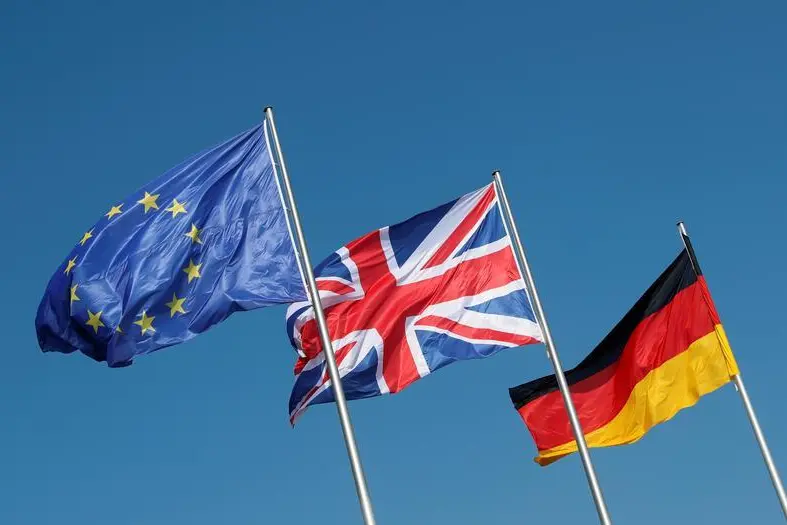PHOTO
LONDON - The bad economic news emanating from Britain and Germany warrants action. A response may well be in the works, given growing talk of looser fiscal policy in both countries. Budget stimulus will, however, be a mere palliative for the problems that ail the pair.
UK GDP shrank 0.2% in the second quarter of the year compared with the previous three months, the first contraction since 2012, national statistics office data showed on Friday. Germany, which will release comparable figures next week, may also report a contraction going by the dire economic reports published in recent weeks. Europe’s biggest economy only a day earlier reported a 1.5% monthly drop in industrial orders in June – nearly four times the decline expected by analysts.
Britain’s biggest problem is Brexit. Prime Minister Boris Johnson has promised to take the country out of the European Union on Oct. 31 with or without a trade deal. British and EU intransigence has fanned concern that the exit may be a disorderly one. Business investment has suffered. And the manufacturing sector is contracting, according to a recent survey of purchasing managers. Meanwhile in export-orientated Germany, global trade tensions are one of the main culprits for the economic slowdown.
This backdrop increases the urgency for fiscal activism. Johnson is already splashing the cash in Britain. Germany is considering ditching its cherished balanced budget policy to help cushion the effects of a planned exit from coal over the next two decades, a senior government official told Reuters on Thursday.
Fiscal easing may mitigate the economic gloom but won’t lift it. A chaotic Brexit risks inflicting a huge shock on the UK economy that cannot be fully offset by public spending. And while Germany could do with spending more on infrastructure and a greener future, such projects take time to come to fruition and won’t have much impact in the short term - nor will they help exporters much. Corporate tax cuts would be a blunt tool to help such companies but would not overshadow the impact of lower foreign demand for German cuts. Inaction is not an option, but action will only take London and Berlin so far.
CONTEXT NEWS
- UK gross domestic product fell 0.2% in the three months to June compared with the previous three months, the Office for National Statistics said on Aug. 9. It was the first quarterly economic contraction since 2012.
- The UK economy grew 1.2% from a year earlier, compared with the 1.8% annual growth rate reported for the first quarter.
- German industrial production fell 1.5% in June compared with the previous month, official data showed on Aug. 7.
- German second-quarter GDP data will be released on Aug. 14.
(Editing by George Hay and Karen Kwok) ((swaha.pattanaik@thomsonreuters.com; Reuters Messaging: swaha.pattanaik.thomsonreuters.com@reuters.net))





















